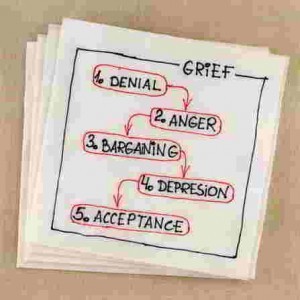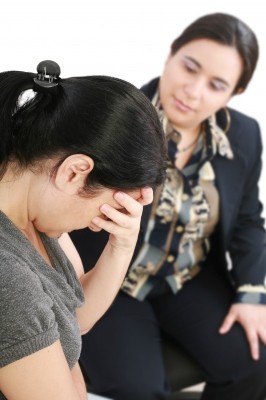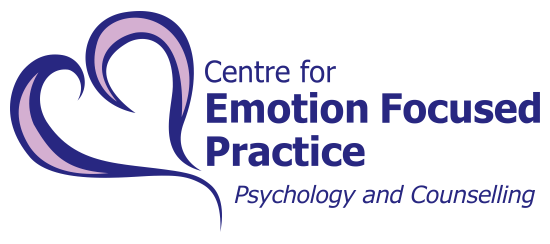Coping with Loss and Grief

Family and friends can help support the grieving
Grief is the profound sorrow that affects us when we are bereaved of someone we love or when we lose something that we care for deeply. Grieving or mourning is a natural reaction to loss, a process that takes its own time to cease. Some of us may not have the luxury of allowing time to do the healing. We have people who are dependent on us – children, for instance – for whose sake we need to raise ourselves up and move on.
We cannot force ourselves to feel better, but there are ways for coping with loss and grief. These will, over the course of time, help us to ease the pain of bereavement and heal us so that we can at least return to some semblance of normal.
Five Stages of Grief
A Swiss-American psychiatrist, Elisabeth Kübler-Ross, first proposed the concept of five stages of grief in her path-breaking book, “On Death and Dying.” She explained how a person passes through the different stages – not necessarily in the same order and not necessarily all of them – before accepting the finality of death and attaining peace. Understanding the different stages can serve as a guide to understanding our own personal loss by helping us to interpret how we are coping with loss and grief.

Five stages of grief
1. Denial: Denying that the loved one is no more and blocking out the truth. This is our temporary refuge against the shock and the flooding of emotions.
2. Anger: Once the initial shock passes, the reality takes over, but we are still not prepared for coping with loss and grief. Consequently, we take refuge in anger – a misdirected, irrational anger – blaming whoever is near, whether we know them or not, or even blaming the just departed loved one.
3. Bargaining: Putting off facing the inevitable by running over in mind the different choices that we could have made to prevent the demise or loss – arguing with ourselves how things could have been different had we taken another route. This bargaining with ourselves is in an effort to recover from the overwhelming emotions.
4. Depression: This is the stage when the finality of the situation can no longer be ignored and intense sorrow takes over. We are devastated, we lose all vitality, and we do not have the energy to take a step. This is where we can be bolstered by kind and reassuring word. Even the mere presence of our friends and family can give us strength in coping with loss and grief. This is also a stage when we are finally getting ready to say goodbye to our loved one.
5. Acceptance: This stage is where we come to terms with loss, make our peace and start to move on. Marked by withdrawal, this stage can sometimes be confused with depression. Not everyone reaches this stage… Sometimes, acceptance could take years.
The Healing Process
The above steps, as I previously mentioned, are just a broad classification. Every individual’s sorrow is personal and each person has his or her own unique way in coping with loss and grief. No one can truly understand the gamut of emotions that a grieving person goes through. Nonetheless, family and friends can help support the grieving – the only requirement is to allow ourselves to grieve.
Grief counsellors generally suggest the following ways for coping with loss and grief:
– Express your emotions and actively mourn. When you are devastated, feel empty, or disoriented, express your sadness in whatever way you can. Crying, wearing black or arranging a funeral can all serve as an outlet and is an important part in coping with loss and grief. (Remember that not everyone cries and, contrary to popular belief, crying is not necessary for mourning).
– Don’t push away your pain. You may have little ones depending on you and you want to be strong for them, but banishing your feelings is not going to help them. It is okay to drown in sorrow for a while.
– Allow your near and dear to take care of you, at least for a while. Surround yourself with friends, if that helps you. Allowing yourself space to grieve is okay, but isolating yourself is not a healthy way to grieve. Share your sorrow and your tears. Turn to your faith if that comforts you.
– Do not neglect your health. Visit your doctor, as usual. Get enough sleep. Take the effort to eat properly and be compliant with your medications, if you are on any.
– When we are grieving, we are unable to take good decisions. Postpone financial decisions or confer with your trusted friends if you have to decide on something major.
– Take one step at a time – take each day as it comes. You will fall into a comfortable routine, and without your notice, you will achieve a new normal.
When the Pain Doesn’t Go Away

Grief Counselling
It is normal for the pain to take its own time to pass. However, not every one of us is able to reconcile to the loss of a loved one. Some have no energy or no will to live, some people have trouble with day-to-day life, some have unexpected bouts of crying episodes, while others still may feel like crying but cannot… If you feel you cannot cope at all, you can seek the help of a mental health professional, such as a grief counsellor. The grief counsellor will suggest therapies for coping with loss and grief. Therapies such as the Process Experiential Emotion Focused Therapy (PEEFT – the treatment of choice here at the Centre for Emotion Focused Practice) or Cognitive Behaviour Therapy can help you examine your feelings and emotions and can guide you in gaining a fresh perspective and focus in life. The grief counsellor may also suggest group therapy – a bereavement support group, for instance, where you can share your thoughts with other people who have also suffered loss, thereby gaining some comfort. At times, if required, the psychologist may also prescribe medications such as antidepressants for some length of time.
When Grief Returns
Frequent reminders of the loved one can also affect you and push you back into depression. You cannot turn away from memories and reminders – they are all over the place – a familiar song, a movie that you both watched together, a place you both loved to visit. Anniversaries and birthdays too bring with them fresh heartache. We never really forget our loved one; we never really stop missing even years after the loss… He or she was our special person. So, how to cope with these memories and the accompanying pain?
It is okay to feel sad and bereft, but it is important not to become isolated. Be prepared. Do not be alone on anniversaries and brood. Plan an outing with your friends or relatives for that day. Join a bereavement support group, where you can reminisce about the best memories of your loved one. Go to a church or a temple. Join a social cause. Just keep yourself engaged.
It is also very common to feel guilt or anger. A familiar object, for instance, can trigger memories and make you feel guilty that you are trying to move on.
Sometimes, it is difficult to differentiate grieving from depression. While depression is one of stages of grieving, you recover from it when you start accepting your loss. However, in the case of ongoing depression, you are unable to reconcile with your loss; you feel hopeless, and have morbid thoughts and tendencies. It is best then that you reach out and seek help in coping with loss and grief.
Dr. Geoff Newbegin is an experienced counsellor and psychologist with a wide range of clinical experience in anxiety, depression, stress management, anger management, men’s issues, self-esteem, life transitions, grief & loss, post traumatic stress disorder (PTSD), and personality disorders. He has over 30 years of work experience and he came to the psychological profession after many years as an engineer, project manager and policy planner. He says that all his working experience has enabled him to be more focused in understanding processes and people.
If you are looking for help, whether for yourself or for a loved one, our psychologists can assist in exploring underlying issues through therapy. Please visit our practitioners’ page to find out more, or call (03) 9820-5577 for an appointment or to make enquiries.
Related Articles
- When to Visit a Psychologist
- How Can We Build Resilience?
- Problem Solving: A Psychological Perspective
- Top 5 Things to Do to Support a Family Member with Depression
- Grief and Recovery
- You Can’t Make Sense of Happiness if You Don’t Know Sadness






Since management techniques can help to eliminate the symptoms,
you might be completely unaware if one of your family members has
been diagnosed with depression. A chronically depressed person may often have suicidal or violent thoughts
towards themselves or others. -Lecture 5: DISCOVERING NUTRITIONAL DEFICIENCY DISEASES.